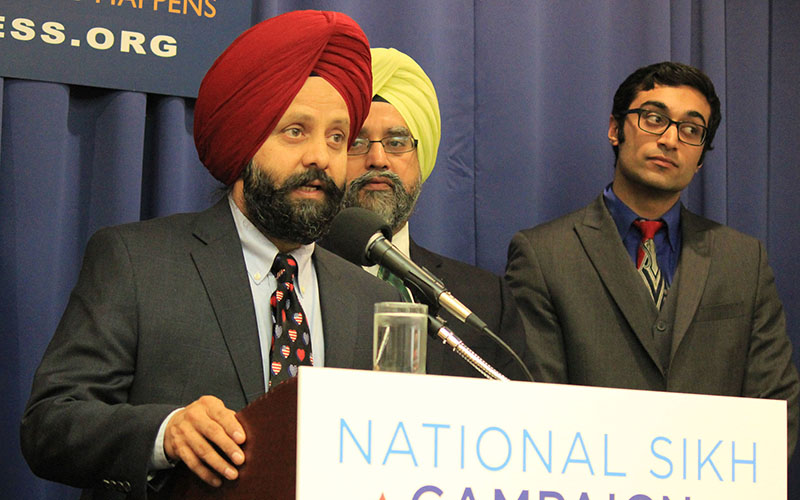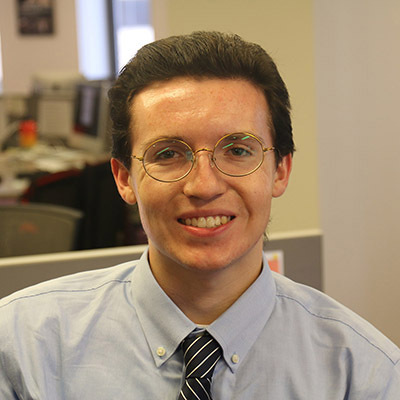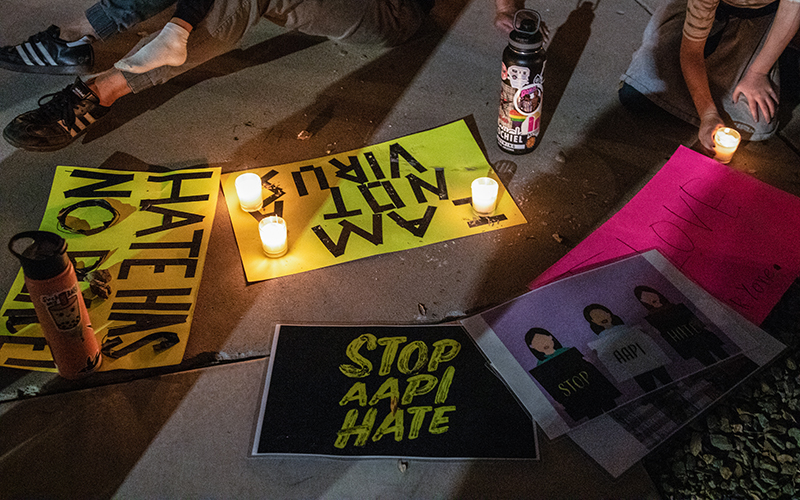WASHINGTON – It was 21 years ago that a gunman killed Balbir Singh Sodhi in Mesa, making him the first victim of a hate crime in the wake of 9/11.
On the anniversary of that shooting Thursday, Mesa Mayor John Giles joined local officials, Cabinet secretaries and community leaders at the White House to call for a renewal of efforts to combat violent extremism and rising hate crimes.
“Mesa, Arizona, is a very compassionate city,” Giles said during a bipartisan panel with four other mayors. “But I’m a little ashamed to tell you that we are the city that had the first hate crime following 9/11, a wonderful Sikh gentleman … was shot and killed by someone because he was wearing a turban.”
But Giles said the city has learned valuable lessons since Sodhi was killed while planting flowers outside his gas station, and that it hopes to prevent such a tragedy from happening again.
His comments came during the Biden administration’s daylong United We Stand summit, where the White House highlighted a series of initiatives it has launched to battle hate, through everything from humanities funding to policing to civic projects.
The day included the release of an open letter signed by more than 150 mayors – including Giles, Phoenix Mayor Kate Gallego and Tucson Mayor Regina Romero – renewing a 2017 initiative to combat extremism and hate crimes with educational programs and resources for law enforcement.
Experts said they were glad to finally see executive action to address the rise in extremism across the country after they had “been ringing the warning bell for a long time.”
Rachel Carroll Rivas, interim deputy director of research at the Southern Poverty Law Center, said the Biden administration’s focus on prevention and not just law enforcement was a sign that the administration has been listening.
“We need to take different tactics to combat disinformation, hatred and the othering of groups of people, wholesale spreading of false conspiracy against the government,” Carroll Rivas said. “They’re not necessarily things that lend themselves well to a narrow criminal justice system.”
Carroll Rivas said the administration’s plan to fund the arts and humanities was a particularly good way to reach the public and heal divisions in communities.
That was echoed Thursday by Shelly Lowe, chair of the National Endowment for the Humanities, who said at the White House event that art can reach people in ways public policy never can, especially after an attack.
“In moments of loss and tragedy, we come together to both create and turn to art, poetry, music, literature, for solace and healing,” said Lowe, a member of the Navajo Nation.
She announced that she would be working with the National Endowment for the Arts to “build resilience and prevent radicalization and extremism before it takes hold” by supporting libraries, theaters and museums as well as providing funding to schools.
But before the administration’s initiatives can begin to take effect, experts warned that things will get worse before they get better.

A file photo of Rana Sodhi, a Sikh whose brother, Balbir Singh Sodhi, was killed four days after 9/11 by a man who mistook him for an Arab. Rana Sodhi was at Thursday’s White House event. (File photo by Jessica Boehm/Cronkite News)
Morgan Moon, investigative researcher for the Anti-Defamation League, said that hate groups have been growing over the last few years, using anger over events like COVID-19 and the recent FBI raid on former President Donald Trump’s hotel Mar-a-Lago to recruit new members.
Moon said those headlines have “radicalized individuals to take matters into their own hands,” pointing to an armed protest outside an FBI office in Phoenix and another attack on an FBI office in Cincinnati where the gunman was killed.
There were 283 reported hate crimes in Arizona in 2020, the most recent year for which Justice Department data is available. That was 66 more than in 2019 and the most in the state since 2001. Over 71% of the hate crimes in Arizona in 2020 were racially motivated.
Carroll Rivas said that Arizona stands out as one of the top states for extremist activity. The SPLC reported that Arizona had 22 active hate groups in 2021, which included neo-Nazi, white nationalist, antisemitic and other groups.
“Unfortunately, Arizona really does tend to represent the whole spectrum of various types of hard-right extremist groups,” she said.
But Giles said he is optimistic that initiatives at the local level can bring communities back together.
“This is a horribly divided country,” Giles said. “But the majority of people are yearning for a reconciliation.”


